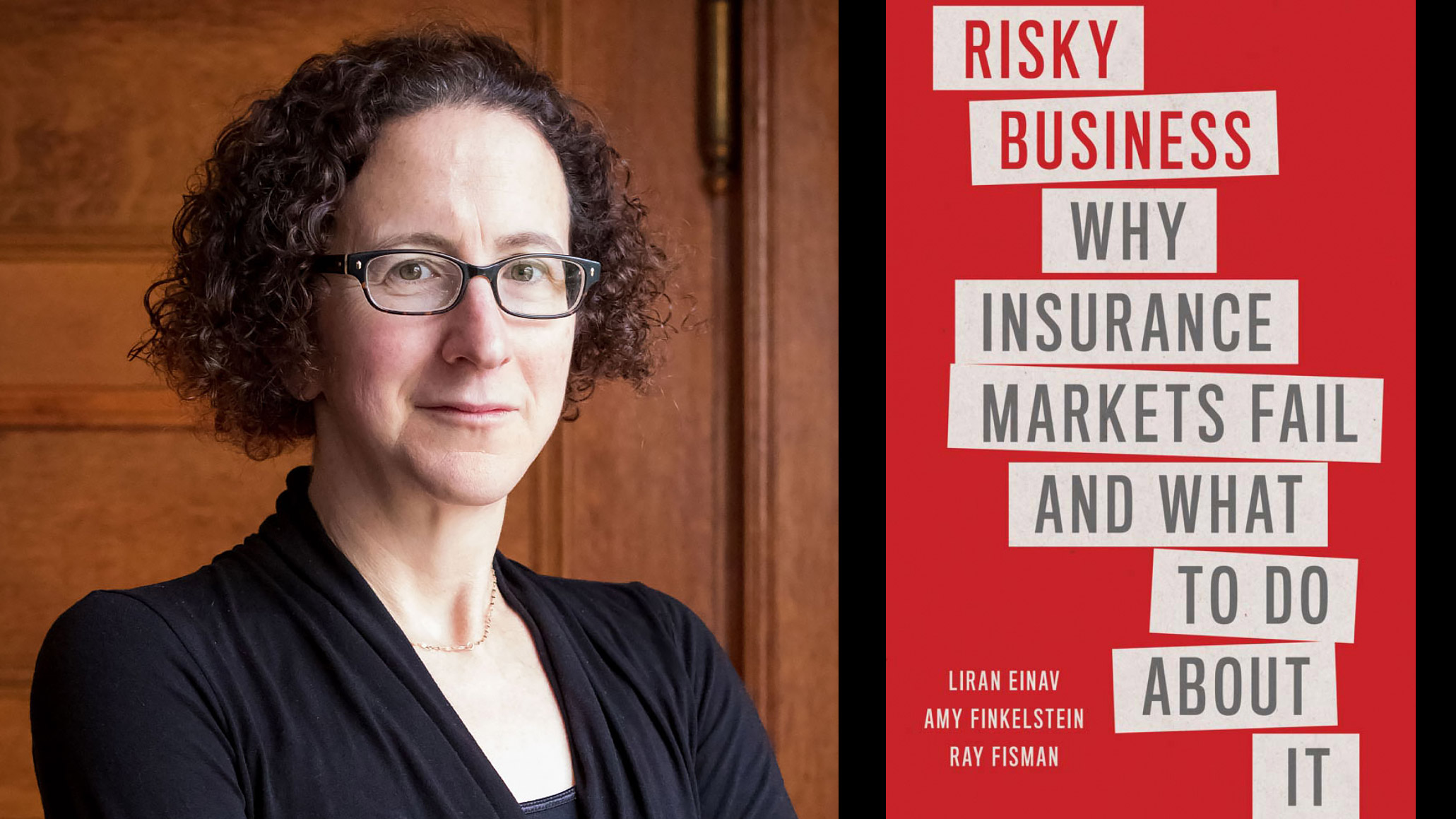The paradox of the insurance business
Amy Finkelstein examines the core issue in the industry: Who gets to be a customer?

The insurance business revolves around a paradox. People want insurance in case something goes wrong. But insurers want customers for whom things rarely do. This means the entire industry involves a struggle over the kinds of customers it attracts.
“The insurer’s profits depend not only on how much they sell, but who they sell to,” says MIT economist Amy Finkelstein, the coauthor of Risky Business: Why Insurance Markets Fail and What to Do About It (Yale University Press, 2023). The book, written with economists Liran Einav of Stanford and Ray Fisman of Boston University, reveals how this effort to avoid “adverse selection,” or too many needy customers, explains frustrating or quirky features of many types of insurance.
For instance: Why do health insurance companies have an “open enrollment” period lasting only a few weeks each year? Why is dental insurance “appallingly inadequate”? Why is there a waiting period before auto or life insurance takes effect? Why would auto insurers care about your GPA?
In every case, the answer involves customer selection. Enrollment periods exist so that people do not wait until they have a specific diagnosis before choosing their insurance. Similarly, few people upgrade their dental plan before they need more care.
If people don’t sign up for insurance until things go wrong, it can produce a vicious spiral. When too many consumers need payouts, premiums rise and insurance can become unaffordable. Companies and industry sectors can collapse.
“One of the biggest problems with adverse selection is it can make a market disappear entirely,” Finkelstein says.
This is also why waiting periods exist—often two years for life insurance, or a week for auto insurance. And sometimes insurers come up with less obvious strategies. Auto insurers ask about academic records because, for whatever reason, people with more success in school file fewer claims. Meanwhile, many people enrolled in Medicare Advantage plans receive free gym membership, because companies have found that people who value that perk tend to be healthier.
The Affordable Care Act, famously, has addressed adverse selection by mandating that everyone—even the healthy—obtain health insurance, while providing subsidies for some. That approach has been the subject of much debate, but it does acknowledge the central tension of insurance.
“Sometimes even getting the policy right doesn’t mean making the world perfect, but deciding how to balance different types of problems,” Finkelstein says. Making prices the same for everyone can seem fair and just. But the numbers may not add up for insurers, as shown by the collapse of state-backed health insurance exchanges in New Jersey and New York that worked that way.
“In one sense it was fairer, in that nobody was being treated differently, but everybody was suffering from a lack of insurance,” Finkelstein observes. “We need to understand those trade-offs and make more informed decisions.”
Recent books from the MIT community
Office Shock: Creating Better Futures for Working and Living
By Bob Johansen, Joseph Press, SM ’97, PhD ’99, and Christine Bullen, SM ’76
BERRETT-KOEHLER, 2023, $24.95
Foresight and Design: Composing Future Places
By Mark C. Childs ’81
ROUTLEDGE, 2023, $39.95
Telepresence: Actual and Virtual Promises and Perils of Converging New Realities
By Thomas B. Sheridan, ScD ’59, Ford Professor of Engineering and Applied Psychology Emeritus in mechanical engineering and aero-astro
CRC PRESS/TAYLOR & FRANCIS, 2023, $110
Data Science in Context: Foundations, Challenges, Opportunities
By Alfred Z. Spector, visiting scholar; Peter Norvig; Chris Wiggins; and Jeannette M. Wing ’78, SM ’79, PhD ’83
CAMBRIDGE UNIVERSITY PRESS, 2022, $39.99
The Presence of Something Past: Ulrich Wüst Photographs
By Gary Van Zante, curator of the photography, design, and architecture collections at the MIT Museum
KERBER VERLAG, 2023, $60
Salvador Luria: An Immigrant Biologist in Cold War America
By Rena Selya
MIT PRESS, 2022, $35
Send book news to MIT News at MITNews@technologyreview.com or 196 Broadway, 3rd Floor, Cambridge, MA 02139
Keep Reading
Most Popular
Large language models can do jaw-dropping things. But nobody knows exactly why.
And that's a problem. Figuring it out is one of the biggest scientific puzzles of our time and a crucial step towards controlling more powerful future models.
How scientists traced a mysterious covid case back to six toilets
When wastewater surveillance turns into a hunt for a single infected individual, the ethics get tricky.
The problem with plug-in hybrids? Their drivers.
Plug-in hybrids are often sold as a transition to EVs, but new data from Europe shows we’re still underestimating the emissions they produce.
Stay connected
Get the latest updates from
MIT Technology Review
Discover special offers, top stories, upcoming events, and more.